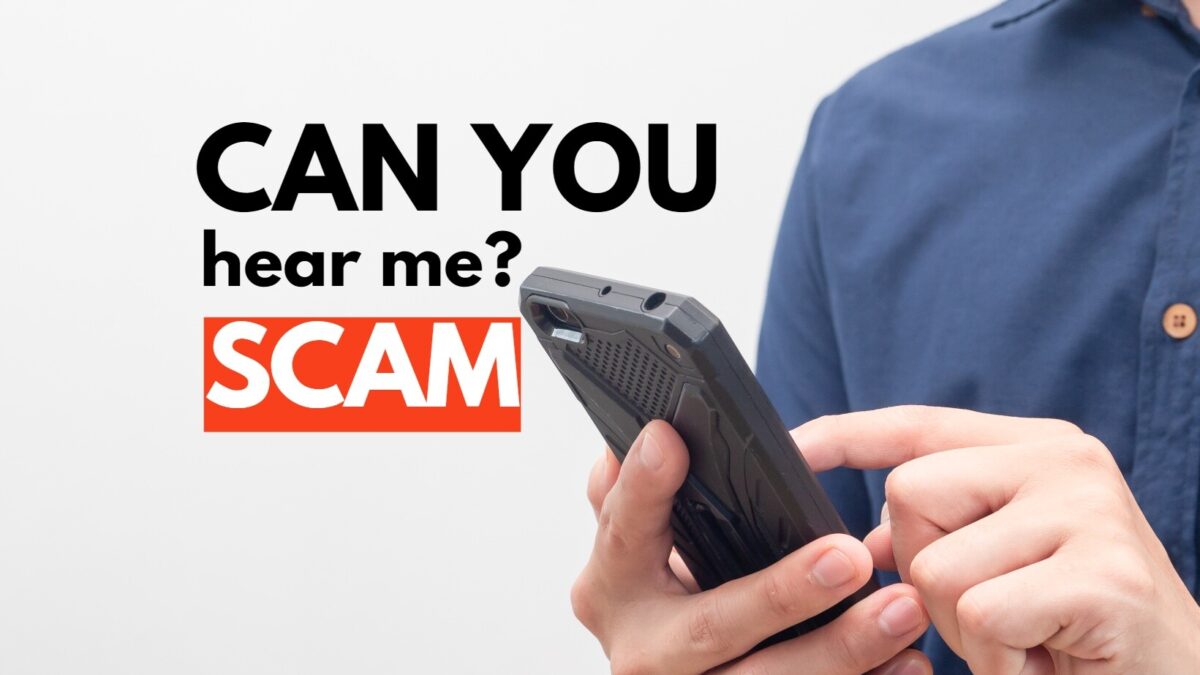If you’ve received a phone call where the caller asks “Can you hear me?”, or a similar question, it’s possible that you’ve been targeted by the “Can You Hear Me?” scam. This scam is designed to trick the recipient into responding with “yes,” which the scammer then records as evidence of the recipient’s agreement to something.
It’s important to be aware of this scam, as scammers may use this recorded statement to sign you up for unwanted services or charge you for goods and services you didn’t agree to.
The best way to protect yourself is to be cautious and not answer calls from unknown numbers, and if you do answer, be very careful about what you say.
How does the scam work?
Scammers perpetrate the “Can You Hear Me?” scam by calling victims, posing a question requiring a “yes” or “no” answer, then recording the response as proof of agreement to something, like a purchase or service. In some cases, scammers also use the recorded response to charge the victim’s credit card or enroll them in recurring services.
Protect yourself by being cautious with unknown numbers, mindful of what you say, and not giving personal information or agreeing to anything over the phone unless you’re sure of the caller’s legitimacy.
GET FREE SCAM ALERTS VIA EMAIL AS SOON AS THEY ARE EXPOSED
NEVER GET SCAMMED AGAIN!
Scammers never stop devising schemes to separate us from our hard-earned money. So, make sure to sign up for our weekly email scam alerts. TotalScam!™ Alert will notify you as soon new scams are discovered.
GET FREE SCAM ALERTS VIA EMAIL AS SOON AS THEY ARE EXPOSED
SUCCESS! YOU'VE SUBSCRIBED!
Scammers change tactics all the time in order to separate us from our hard earned money. Leave your information below and TotalScam!™ Alert will notify you as soon new scams are discovered.
The Red Flags
There are several red flags to watch out for when it comes to the “Can You Hear Me?” scam. One of the most common is receiving a call from an unknown number and being asked to confirm your name and address.
The scammer may also ask if you can hear them clearly, which is where the “Can You Hear Me?” question comes in.
How can I protect myself from the “Can You Hear Me” Scam?
Be wary of unsolicited calls, especially from unknown numbers to protect yourself from “Can You Hear Me?” scam. Don’t give personal information or agree to anything over the phone unless you are certain of the caller’s identity. If you receive a call asking “Can you hear me?” or similar, hang up, block the number, and report it to authorities. Remember, it’s better to be safe than sorry.
If you believe that you have fallen victim to the “Can You Hear Me?” scam or a similar phone scam, contact your bank or credit card company as soon as possible to report the incident and request that any unauthorized charges be reversed.
You should also report the scam to the appropriate authorities, such as the Federal Trade Commission (FTC) in the United States.
Avoid falling victim to phone scams by taking the following steps
- Check phone numbers closely, as scam artists may spoof calls to make them appear local.
- If you receive a suspicious call, hang up.
- Regularly review your financial statements and phone bills for unauthorized or fraudulent activity.
- If you find unauthorized charges, file a dispute within the appropriate time frame.
In conclusion
The “Can You Hear Me?” scam is a phone scam that uses deception to trick the recipient into responding with “yes” and records the response as evidence of agreement.
To protect yourself from this scam, you should exercise caution when receiving unsolicited phone calls, avoid providing personal information or agreeing to anything over the phone, and hang up immediately if you hear the “Can You Hear Me?” question.
In case you suspect that you have fallen victim to this scam, it is important to take immediate action to secure your financial information and report the incident to the relevant authorities for further investigation. Remember that it is better to be proactive in protecting yourself from scams.
Weekly Scam Alerts - Free Service
Get notified when new scams are exposed!
Scammers never stop devising schemes to separate us from our hard-earned money. So, make sure to sign up for our weekly email scam alerts. TotalScam!™ Alert will notify you as soon new scams are discovered.
YOU'VE SUBSCRIBED!
Follow us on Facebook and join the discussions!
Scammers change tactics often, so make sure to sign up for our weekly scam alerts by email. Our team sends out new scam notifications by email as soon as they are discovered.
Phone Scam Blacklist
The following phone numbers, websites, and emails have been reported to us by the consumer. If you feel this information is incorrect, you may submit a request for removal or correction by contacting us using this form.
Submit phone numbers, websites, or email addresses associated with a scam. Your submission will be published as soon as it gets reviewed by one of our staff members.
How useful was this report?
Average rating 5 / 5. Vote count: 1
No votes so far! Be the first to rate this post.
Attention: Consumers who have been contacted by scammers could have had their personal information breached. TotalScam!™ highly recommends that consumers whose information has been breached obtain an identity theft protection service immediately.
There are several companies that offer identity theft protection in the US. One of the most inexpensive options we were able to find is the protection offered by LifeLock. You can start your protection here.
Disclaimer: The information and opinions contained on this site are not endorsed by LifeLock. TotalScam!™ receives compensation from LifeLock. This helps support our scam prevention efforts.
